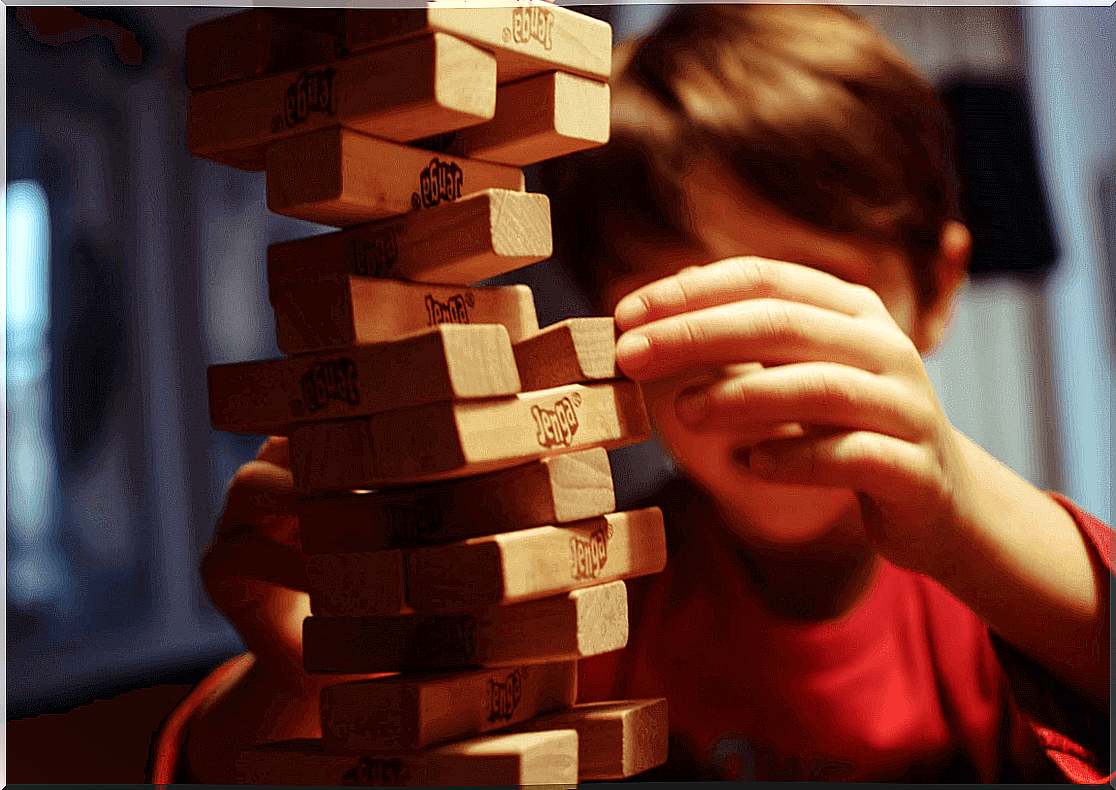How To Take Care Of The Emotional Health Of Children With Learning Difficulties?

We know more and more about the different learning problems that can appear during the school stage. As the society has developed, the need to adapt the content and the way of teaching children with this type of difficulty has been emphasized.
Thus, support figures have been added in school centers and schools normally benefit from specialists, both in therapeutic pedagogy and in hearing and language. However, despite all this progress, another fundamental aspect in the lives of these little ones is generally neglected: their emotional health and the care they need in this area. Now the question is: what can we do to support them and so that they do not feel stigmatized?
How may children with learning difficulties feel?
When a child has learning difficulties, it is common for emotional discomfort to appear alongside these difficulties. Thus, feelings of frustration, sadness or anxiety can erupt. But we must keep in mind that these emotional problems also exist in children who do not have particular difficulties at school.
How can parents tell if their children are feeling unwell? Different signals can attract our attention. First of all, emotions such as the ones we have reported may appear. They are mostly related to school situations and can manifest themselves through crying, worries, headaches and stomach aches, as well as behavioral problems.

Having learning problems doesn’t mean being less intelligent
These feelings can appear for different reasons. One of them is that frequently children with learning disabilities believe that they are “dumber” than others. Parents need to be extremely careful with these kinds of ideas because they are totally wrong.
The progenitors must explain to the child, in a clear manner adapted to his level of development, what learning difficulties are. Thus, the child must clearly understand that they are not linked to a more or less important intelligence. In addition, they must make him understand that his learning difficulties do not make him a less important person and that the people around him will not love him less because of it.
This is very important because if children perceive that their parents feel bad about this diagnosis, they will feel that something is wrong with them. Moms and dads will therefore have to take the reins and pass on a positive attitude to their children.

Are My Learning Problems Making Me Different?
As we grow up, we gradually understand that everyone is as they are and that there is what we know in psychology as “individual differences”. But when we’re little, we just want to look like the other little boys and girls around us, or at least if we’re different, don’t let that difference hurt us. It is therefore good to intervene and help children understand the origins and consequences of the difference they perceive at home.
To help them with this, it is important that the little ones also receive attention when they are successful at things and not just when they make mistakes related to their learning problems. An inertia can arise from this behavior, fueled by our good intentions which make us point out the flaws of children to the detriment of their successes, in the hope of seeing them improve. It is therefore necessary to act and to make efforts to reverse this inertia, if we have created it, and to support children more when they achieve certain things.
Finally, it is also necessary to assess whether the supports and academic adaptations received by the child are appropriate. It may be necessary to readjust them taking into account the emotional and social difficulties that have arisen and working together with parents and teachers to achieve greater well-being of the child.

All these efforts wear me out: overloading children with learning problems
It should be remembered that in general, children with learning difficulties need to devote more time and effort to homework. This extra focus can cause them to get frustrated and angry and so it is very important to work on this point.
Working on the basis of smaller goals that are easier to achieve will be a greater source of motivation for the little ones. They will thus see the progress they are making, instead of seeing a mountain in front of them that is impossible to climb. This very simple step is fundamental.
Finally, another element will help them in a considerable way to strengthen their emotional well-being: to find something that makes them feel good. That is, an activity or sport that children enjoy and which make them feel fulfilled. Having learning problems can affect them emotionally, but we have the power to make them feel better.
Images by Ben White, Michal Parzuchowski and Element 5 Digital









